The tabletop game collection began in 2010 with donations from International Games Day. In 2012 we began purchasing board games, card games, roleplaying games, and giant games for outreach and events. In 2015, we opened up the collection for circulation to the campus.
Collection Development
This collection is focused on the use, creation, and impact of gaming. Tabletop games are collected that support student, faculty, and staff interest in recreation and research, which includes the study of mass media and popular culture, creative and educational game development, and student life.
Criteria for purchase include:
- Games that support curriculum and collection goals
- Top-rated or high popular interest games
- Games that are historically relevant to game history
- Games that push design boundaries
Roleplaying Guides
The Library offers role-playing handbooks and accessories such as dice, figurines, and battle mats to our patrons.
Tarot Cards
Faculty requests and student interest have led to the creation of a small collection of Tarot cards housed with the game collection.
Games in the Media Commons
About half of the tabletop game collection is in the Media Commons, the rest in remote storage are accessible through the library catalog. Remote materials are delivered daily on request.
Large and small games are shelved separately to avoid smaller games getting lost at the back of a shelf. Games deemed small are labeled with a green sticker and noted in the catalog.
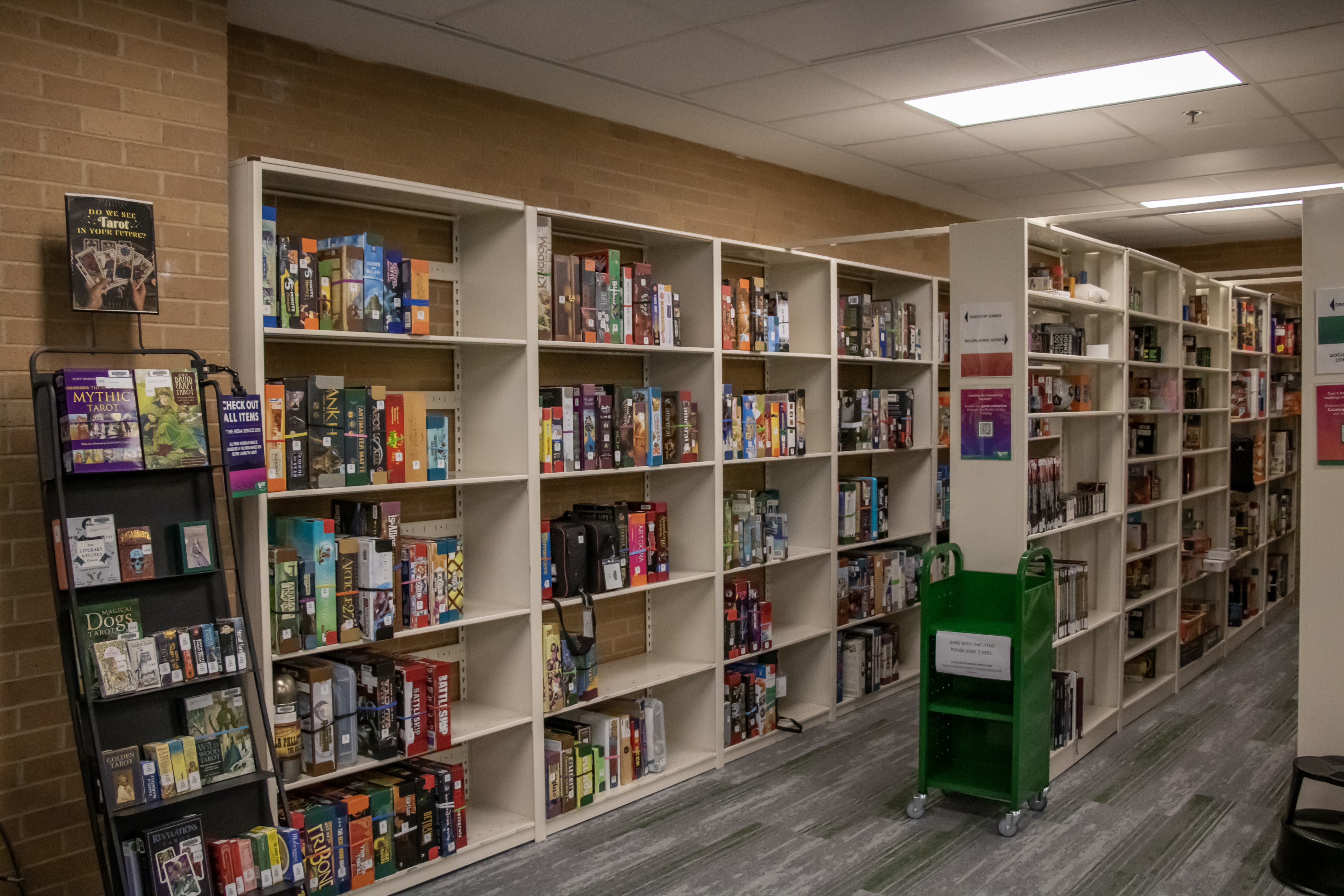
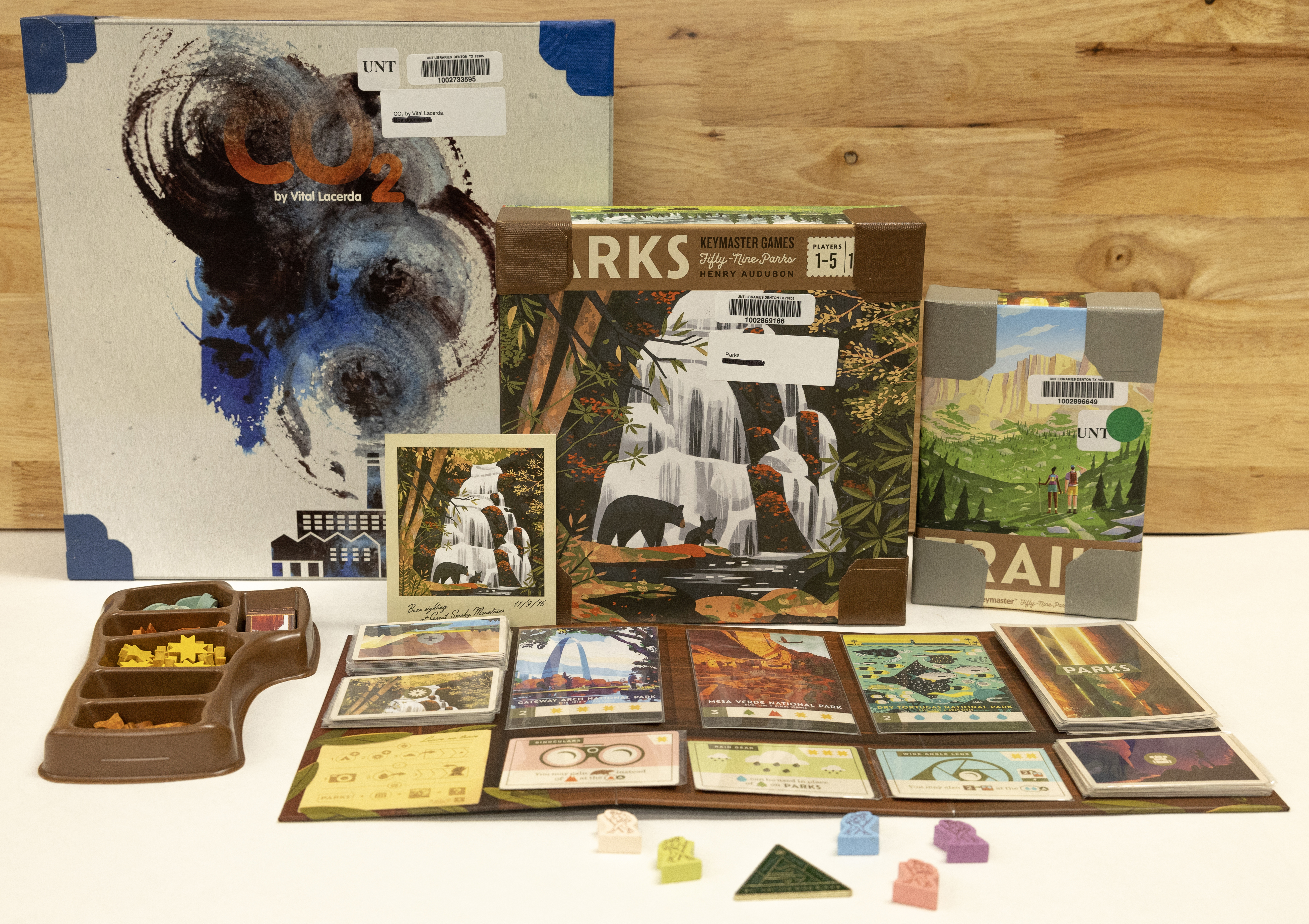
Circulation
- Faculty and staff can check out ten items for seven days
- Students can check out three items for three days.
Faculty and staff are not assessed fines but students are fined $2 a day for each overdue item.
Loss and damage prevention
At return, our games are weighed on a scale (Tree Model HRB10001). If the weight is off by 3 or more grams the pieces are counted.
Interlibrary Loan
We do not lend our tabletop games or accessories through interlibrary loan.
Tabletop Game Processing
Tabletop games present a different challenge for libraries but are not difficult to prepare for circulation. The UNT Library conducted a study on circulating tabletop games to determine best practices called Don't Just Roll the Dice: Simple Solutions for Circulating Game Collections Effectively (presentation) (article). These studies were used to guide the extent of our processing.
Processing includes:
- Cards sleeved
- Cloth corners on outer box corners
- A single barcode on the outside of the box
- Pieces bagged
- Box banded with silicon bands
After processing games are weighed and a note is added to the item record with the weight. Our scale is a Tree - HRB 10001.



Cloth Corner Procedure 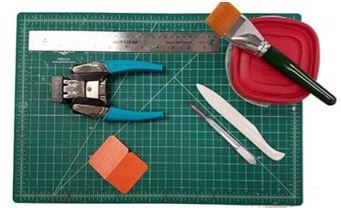
Supplies
- Rounded corner punch tool
- PVA glue
- Cutting mat
- Box cutter / Exacto knife
- Ruler
- Book binding cloth
Cutting Corners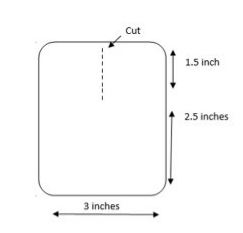
- Use a piece of cloth that is 12” long and 1” above top of board game.
- Try to match color of cloth with board game being cornered.
- Cut pieces are 3 inches wide / about the height of box plus 1" tall
- Measure down 1-1/2” in the center and cut to that point
- Fold in half and cut the top two and bottom non-fold corner
- Use the corner cutter on 3 sides of the cut cloth
Glue the cloth down
- Add glue to the cloth corner. (Put the paint brush into water between uses.)
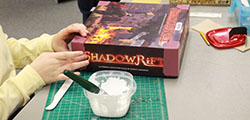
- PVA glue allows time to get the corner to move until it sets.
- Wipe off any excess glue with a damp cloth.
- Smooth the edges a few times as the glue dries.